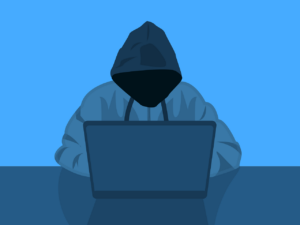
- Originally Published on October 16, 2024
What To Do If You’re Hacked and Threatened: Immediate Steps & Legal Advice
In today’s digital age, the possibility of being hacked and threatened online has become a frightening reality. As an attorney who specializes in internet defamation and online privacy, I’ve seen firsthand how overwhelming and damaging these situations can be.
If you’ve been hacked and threatened, feeling helpless, violated, or unsure of what to do next is completely normal. But remember, you’re not alone. There are practical steps you can take to regain control, protect yourself, and navigate this difficult situation. Here, we’ll guide you through immediate actions, discuss your legal options, and share strategies for safeguarding your digital presence in the future.
Steps to Take If You’re Hacked and Threatened
The first 24 hours are crucial when dealing with hacking and online threats. Taking quick action can help prevent further damage and protect your personal information.
Secure Your Accounts
When a hacking threat emerges, the first priority is locking down your online accounts. Change your passwords immediately, especially for any account connected to the hack. Consider enabling two-factor authentication for extra security. It’s also important to check account recovery settings — remove any unfamiliar phone numbers or email addresses that may have been added.
Document the Threats
It’s vital to capture evidence of the threats. Take screenshots of any threatening messages, emails, or social media posts, and make sure to save copies of all communications from the hacker. Record important details such as dates, times, and platforms where the threats occurred. This documentation will be invaluable if legal action becomes necessary.
Report the Incident
Once you’ve secured your accounts and documented the threats, the next step is reporting the incident. Contact local law enforcement and file a police report. You can also notify federal authorities, like the FBI’s Internet Crime Complaint Center (IC3), and report any financial or identity theft issues to the Federal Trade Commission (FTC). Additionally, let the affected companies or platforms know what’s happened, so they can take action on their end.
Understanding Your Legal Rights and Options
Hacking and online threats often involve multiple legal issues. As someone who has navigated numerous cases of cybercrime, here’s what you need to know:
Types of Online Crimes
- Hacking: Unauthorized access to your digital accounts or devices.
- Blackmail or Extortion: Demands for money or actions in exchange for not releasing sensitive information.
- Identity Theft: Use of your personal data to commit fraud or other illegal activities.
- Defamation: False statements made about you online that harm your reputation.
Legal Actions You Can Take
Depending on the severity of the situation, you may have several legal options to explore. For example, you can pursue a civil lawsuit to seek compensation for damages related to privacy invasion, emotional distress, or defamation. Criminal charges may also apply if the hacker has violated specific laws. In some cases, it’s possible to obtain a restraining order to prevent further contact or threats from the perpetrator.
Protecting Your Digital Presence Moving Forward
Once the immediate threat is addressed, it’s important to think about long-term digital security. Taking proactive steps can help safeguard your online presence against future hacks and threats.
Start by strengthening your online security measures. Use strong, unique passwords for each account, and consider using a password manager to keep track of them. Regularly update your device software and apps to stay ahead of security vulnerabilities. Be cautious about clicking on unfamiliar links or downloading files from unknown sources, as these are common methods hackers use to infiltrate your system.
It’s also a good idea to monitor your online presence regularly. Set up alerts for any suspicious activity, and respond quickly to any unauthorized content or posts. Building a positive digital footprint can also be a helpful defense. By maintaining professional profiles, websites, and social media accounts, you have greater control over how you appear online.
Dealing with the emotional fallout of hacking and online threats can be just as difficult as managing the technical side. Make sure to prioritize self-care during this time and lean on your support network for help.
How Minc Law Can Help You Regain Control
At Minc Law, we understand how devastating hacking and online threats can be. We’re here to help you navigate the legal complexities, identify and locate perpetrators, and protect your digital presence. Our team has extensive experience with cases involving internet defamation, online privacy violations, and hacking, and we are dedicated to helping you find peace of mind.
We can assist with gathering and preserving evidence, filing police reports, and taking legal action to seek damages or injunctive relief. Additionally, we work to remove or suppress private, sensitive, or defamatory content from the internet, ensuring that your reputation remains intact.
If you’ve been hacked and threatened, you don’t have to face this challenge alone. If you’re a victim of hacked or leaked nudes, contact Minc Law. We have extensive experience helping victims bring their abusers to justice. Call us at (216) 373-7706, speak with a Chat representative, or fill out our online contact form to schedule your confidential consultation.
Get Your Free Case Review
Fill out the form below, and our team will review your information to discuss the best options for your situation.
This page has been peer-reviewed, fact-checked, and edited by qualified attorneys to ensure substantive accuracy and coverage.




